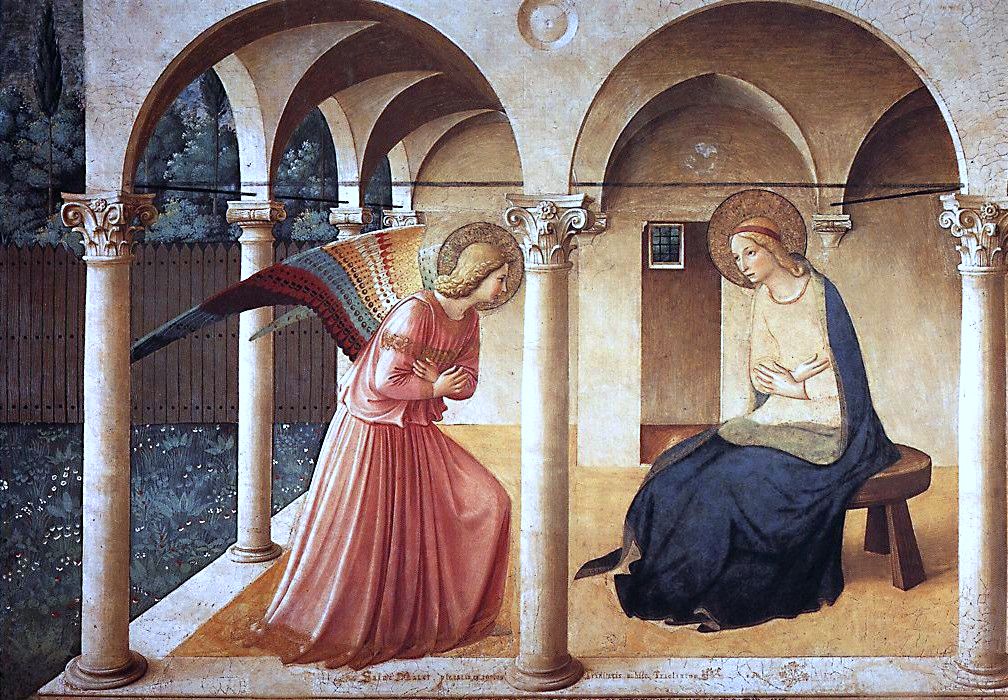
Fra Angelico, The Annunciation, credit Wikipedia
Monteverdi 1610 Vespers, I Fagiolini, plus English Cornett & Sackbut Ensemble, directed/conducted by Robert Hollingworth, Kings Place, Sound Unwrapped, Friday 29th September 2023, reviewed by Leslie Jones
In 1610, Claudio Monteverdi, maestro cappella at the court of Duke Gonzaga in Mantua, felt underpaid and was looking for new employment. At an audience in Rome with Pope Paul V, he presented a manuscript dedicated to the latter, containing a disparate collection of texts, both sacred and profane, including the main elements of what we now call the Vespers of 1610. This MS must constitute the most extensive self-advertisement in music history (see ‘Vespers (1610) – Claudio Monteverdi (1567-1643)’, by Barry Creasy, Chairman, Collegium Musicum London).
In his informative programme notes, Robert Hollingworth, the founder and director of I Fagiolini, contends that ‘a big resonant space’ such as St Mark’s Venice, ‘inevitably smudges most of the detail for most of the congregation/audience’. The ‘clear’ acoustics of King’s Place, in contrast, provide, in his judgement, an opportunity to ‘untangle and clarify a little more of Monteverdi’s sumptuous detail…’ But some commentators, including this one, prefer what Hollingworth calls ‘the great wash of sound that is sonically glorious’. It was noticeable that when the performers moved up to the balcony, the sound became immediately richer. As Fatima Dabbah observes, when the Vespers are performed in a stone church as opposed to an ordinary concert hall, the ‘reverberation’ in the latter is ‘indescribable’ (‘All important acoustics, 9 things to know about Monteverdi’s Vespers, wfmt, October 14th, 2022).
Observing I Fagiolini from close up reveals just how much their singing depends on unspoken communication within the ensemble. On this occasion, they were clearly enjoying themselves (at times, seemingly sharing a private joke) notwithstanding the immense mental and physical demands being made upon them. Indefatigable tenor Nicholas Mulroy evidently played a key role in tying things together.
Music, according to the philosopher Arthur Schopenhauer, ‘stands alone’ as its effect is ‘more powerful and penetrating…than the other arts’. Metaphysics aside, we concur.










